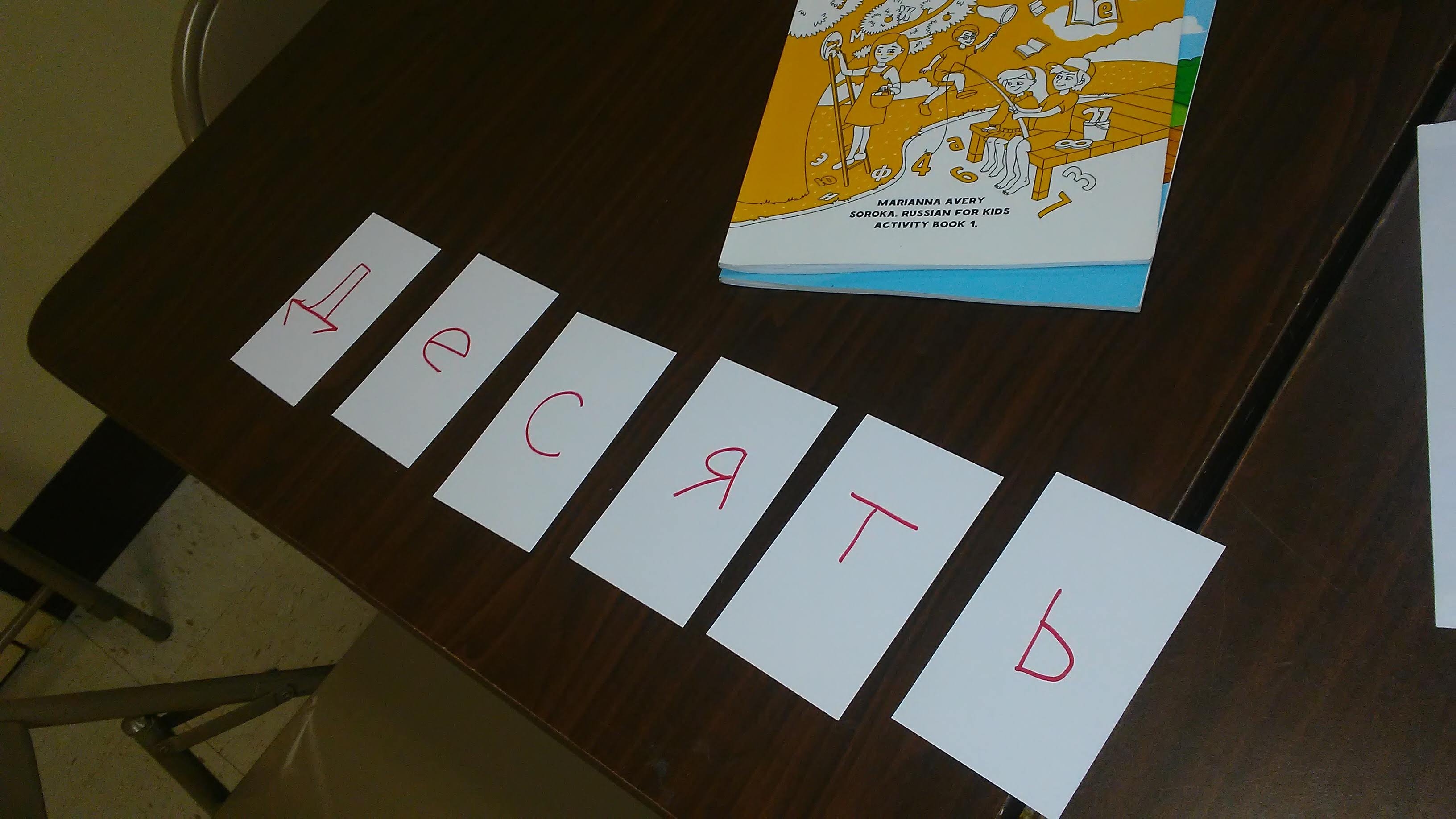Answers to the parents’ questions
Question #1: Why do we use flashcards for reading?
Answer: Flashcards are easier to sort and shuffle. You can add words that students should read and remove those that they already read well.
Question #2: Does it mean that we learn to recognize the whole word?
Answer: Yes, it does. We learn to recognize the entire word. And this way is fine by me, personally. I like it.
Question #3: If the student learns to read full words, then how will it help him to start reading the new ones?
Answer: In the first phase, the student should read only the words that he learned in the lessons. Reading of Russian words that your students don’t understand is a heavy load for them.
Question #4: What other reading exercises do you suggest?
Answer: There are a lot of reading exercises. For instance, the Letters Race game is a very popular one. The game is described in the Teacher’s Book (Unit 4, Lesson 1). Here is the video from my lesson.
Another exercise, which is designed for learning letters and their order in the word, is the Crocodile game. This game is also described in the Teacher’s Book. In the video we see (at 4.10) that even mothers are involved in the lesson and are trying to help their kids to guess the word.
And don’t forget about the anagrams, which also help students to learn the letters and the order in the word.

It turns out that we learn to read from the “two sides.” On the one side, we learn the whole word; simultaneously, on the other, we learn the separate parts of the word: the syllables and letters of which the word consists.
What does it give us? Firstly, the Soroka course is focused on learning the spoken Russian language. We use reading as a support for oral speech.
Those who teach small kids can skip the phase of reading.
Secondly, most of my students perceive the Cyrillic alphabet as hieroglyphs. And it is no joke. People often ask this question in America. Ordinarily, I don’t argue about it. My philosophy is that if the Cyrillic alphabet reminds kids of hieroglyphs, then they should just learn to recognize a word like a picture.
But don’t worry, by the end of the Soroka course the students start reading Russian well. They start reading words they didn’t know before, thanks to all of the exercises geared toward reading.
Another important principle is that kids should read only familiar words they encounter during the lessons (it is vital in the Soroka course, and I am constantly talking about it), so that they can understand what they read. This is essential.
I previously wrote an article where I explained how to read during the first class, when students don’t know anything yet.
There was also an article where I explained how to work with the alphabet during the first class.
Please read them one more time, in order to put the information together and get a full picture about reading.
As always, ask your questions in the comments section. Have a good reading!
Answers to the parents’ questions

